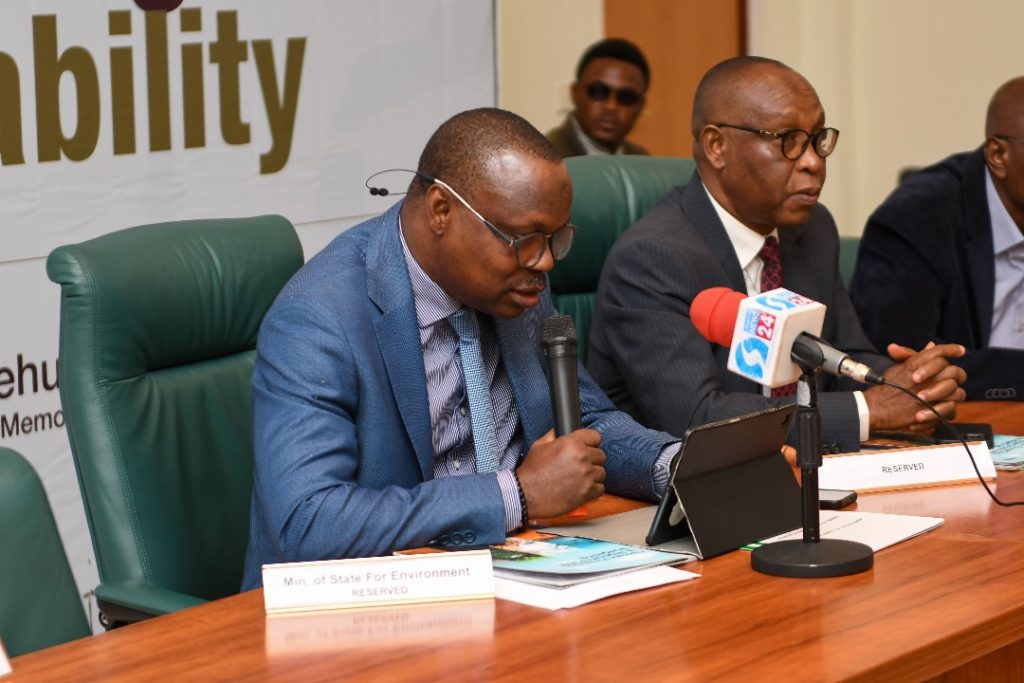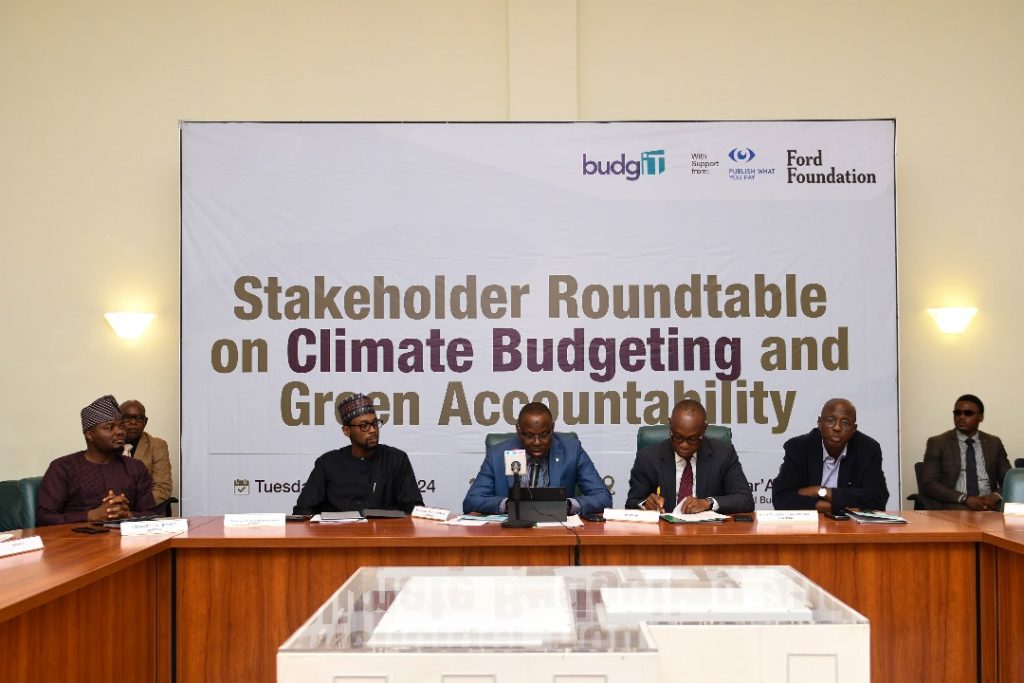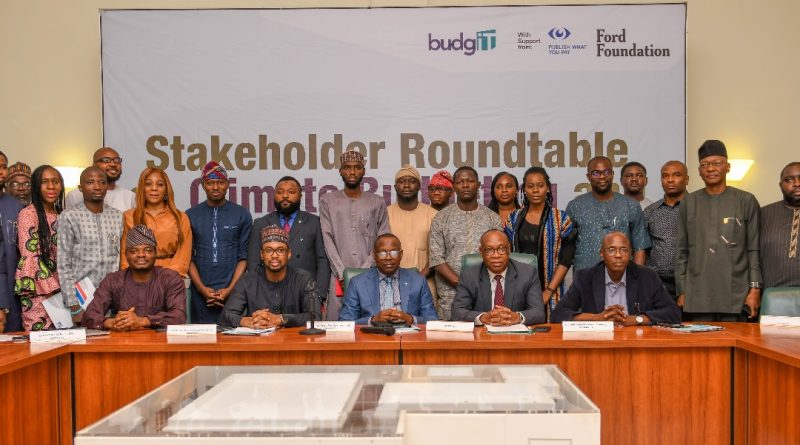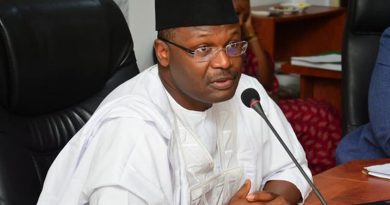Salako Underscores Innovative Collaboration At Stakeholder Roundtable on Climate Budgeting and Green Accountability
The Minister of State for Environment, Dr. Iziaq Adekunle Salako, has underscored the importance of collaborative efforts involving government, industry leaders, organised private sector, NGOs, CSOs and the average Nigerian in collective effort to safeguard the environment. He noted this at the Stakeholder Roundtable on Climate Budgeting and Green Accountability which was held at the Shehu Musa Yar’Adua Centre, Abuja on Tuesday, June11, 2024. He said climate change was undoubtedly one of the most significant challenges of our time. This is because its impacts are felt globally, transcending borders and affecting every aspect of our lives. From rising sea levels and extreme weather events to biodiversity loss and food security threats, the consequences are profound and far-reaching. He added that human beings as custodians of the planet, must take decisive action to mitigate these effects and build a resilient, sustainable future for generations to come.
He said, “Today’s roundtable serves as a vital platform for dialogue and cooperation. It is through such collaborative engagements that we can develop innovative solutions and implement effective strategies to address the complex issues of climate change. Let me therefore use this opportunity to appreciate BudgIT for the work it is doing promoting budgeting reforms, tracking service delivery and natural resource governance, providing institutional support, undertaking research and policy advisory in Nigeria and other countries for us all to have a more equitable society.
“Climate budgeting is a fundamental tool in our endeavour to combat climate change. By integrating climate considerations into our national budgeting processes, we ensure that our financial resources are allocated in a manner that supports sustainable development and climate resilience. This approach not only enhances the effectiveness of our climate policies but also promotes transparency and accountability in the use of public funds.

“Climate change is driven mostly by anthropogenic activities and therefore requires the mass participation of the people in climate action to address the challenges. People are therefore central to prioritising green budgeting and ensuring equitable allocation for effective climate actions. Through green accountability, systematic ways can be created to give the citizen and civil society a voice that places them at the heart of climate funding such that they influence disbursement, implement and monitor solutions and hold leaders accountable.
“The federal government, through the Ministry of Environment, has initiated several key efforts: including but not limited to the National Climate Change Policy and Climate Change Act which provides a comprehensive policy framework and roadmap for our national climate action, emphasizing climate budgeting as a critical component. We have instituted the Green Bond Program, through which Nigeria has pioneered the issuance of sovereign green bond in Africa to finance projects that reduce greenhouse gas emissions and promote sustainable development. So far Nigeria has issued 2 sovereign green bonds, raising a total sum of N25.69 billion to finance 39 projects cutting across afforestation, renewable energy, transportation, agriculture and water resources. The process for the issuance of the 3rd sovereign green. bond is ongoing and has reached advance stage.”
He said Nigeria’s Nationally Determined Contributions (NDC) under the Paris Agreement outline the country’s commitment to reducing greenhouse gas emissions and adapting to the impacts of climate change.
“The NDCs also emphasizes the importance of climate budgeting and green accountability in achieving our climate goals through the following Key recommendations:
I. integrating climate action into national and sub-national development plans and budgets,
II. establishing robust monitoring, reporting, and verification (MRV) systems to track progress on climate actions, mobilizing both domestic and international financial resources to support climate initiatives,
III. continuous training and development programs to enhance technical and managerial capabilities for effective climate governance, and engaging stakeholders, including the private sector, civil society, and local communities, in the design and implementation of climate actions to ensure inclusive and effective climate policies.”

He said the government was working to strengthen institutions including those at the subnational level by enhancing climate governance, building capacity for relevant agencies, improving data collection and management systems, and establishing accountability mechanisms to monitor and report on climate actions. He noted that under President Bola Ahmed Tinubu, climate action is receiving more attention including better funding when compared to previous governments. The introduction of a special presidential initiative for climate mitigation and adaptation, the Presidential Committee on Climate Action and Green Economy Solutions, the Nigeria Green Industrial Zone Program and similar initiatives have the potentials to deepen green budgeting in appropriation processes, he added.
“Despite these efforts however, climate budgeting and green accountability is yet to enjoy the desired prominence commensurate to the heavy challenge of climate change confronting our country. There is still a substantial gap between available resources and the required investments for effective climate action. According to the AFDB, the total climate financing gab in Nigeria is 20.5 USD per annum required for investment in renewable energy, smart agriculture, sustainable transport, water and waste management systems. The total volume of our 2024 green bond represents only about 0.2% of the 2024 national budget depicting a low penetration of green in our budget.. The global economic crisis, global market conditions and our low revenue continues to impact our ability to allocate resources towards climate initiatives, making the balancing of economic development with environmental sustainability a delicate task.
“According to a report by UNDP, many local and national agencies in developing countries struggle with inadequate technical skills to handle sophisticated climate data systems with Nigeria not being an exception. This results in poor data quality and insufficient climate risk assessments, impeding proper budgeting and resource allocation. Also the expertise for green project management and financial planning especially within the public sector is limited resulting in inefficiencies and delays in project implementation thus reducing the overall impact of climate action plans. Many local governments in Nigeria lack the necessary institutional frameworks and skilled manpower to develop and implement climate budgets. There is therefore a strong need for continuous training, access to technology, and strengthening of local institutions to effectively implement climate policies and programs. In order to increase the penetration of green budgeting in our national, sub-national and even the private sector appropriation processes, public awareness and engagement is key. Nigerians need to understand better the importance of climate action and contribute to it”, the Minister said.
On how to strengthen and enhance policies that are inclusive and equitable, ensuring that the voices of marginalized and vulnerable communities are heard and their needs addressed. Salako said we need to encourage innovative financing mechanisms, such as green bonds within the public sectors, and public-private partnerships, to mobilize the necessary resources for climate actions.
“Our subnational governments need to be supported to come up with their own green bonds and the private sector need to scaling up the issuance such innovative financing mechanisms like the green bond to direct more funding towards climate actions. We need to examine ways to strengthen the capacity of our institutions and communities to adapt to and mitigate climate change. This will include investing in education and awareness programs to empower individuals with the knowledge and skills needed to take climate action.
“We need to focus on how to leverage the power of science and technology to develop effective climate solutions, supporting research and development in clean technologies, and promoting the adoption of sustainable practices across all sectors.
We need to focus attention to tracking the level of green penetration of our national and sub-national budgets in order to promote green accountability and stewardship”, he stated.
Speaking on ways to strengthen international partnerships so as to work together with other nations to achieve common climate goals. He said increasing green revenue is one sure way to ensure more funding for climate action.
“It is therefore imperative that all stakeholders within the climate financing and environmental sustainability movement should working for Nigeria to begin to access its fair share of the 103.8 billion global carbon credit market. The federal government is working to formalise the carbon market in the country through the Intergovernmental Committee on National Carbon Market Activation. We are also examining the opportunities offered by the rich biodiversity of Nigeria to earn bio-credits”, Salako concluded.




